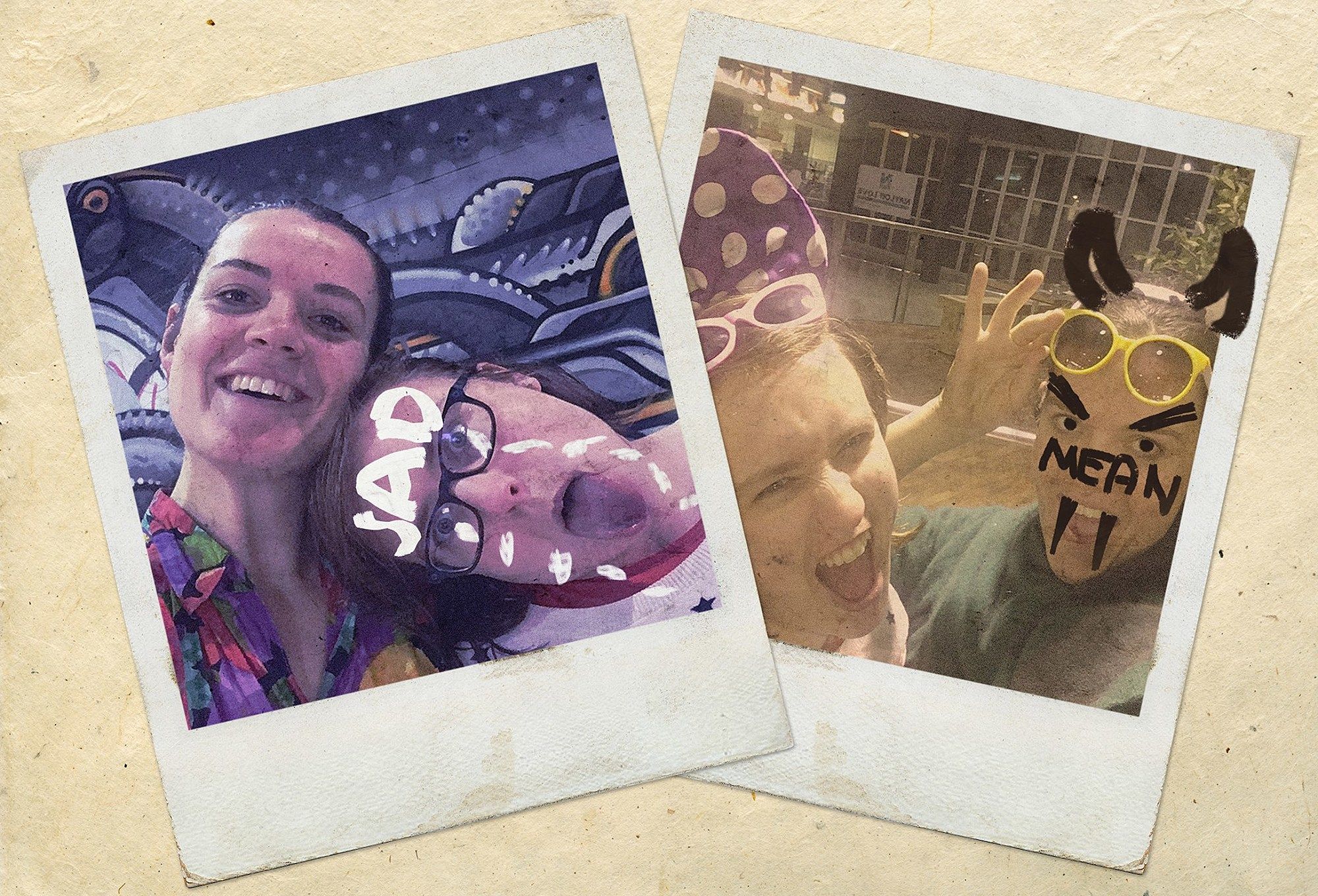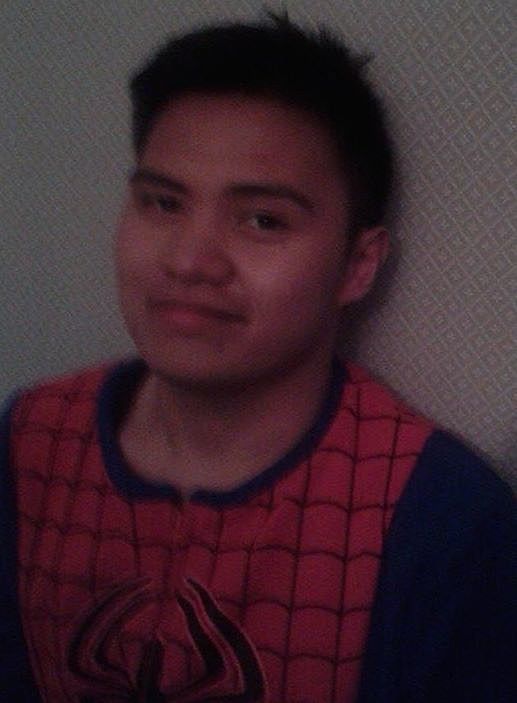I Am Gonna Make It Through This Year If It Kills Me: A Review of Me And My Sister Tell Each Other Everything
Matt Loveranes reviews My Accomplice's return to the Wellington stage after an 18 month hibernation, and finds an emotional and hopeful portrait of depression, anxiety and the difficult relationship between two sisters.
Matt Loveranes reviews My Accomplice's return to the Wellington stage after an 18 month hibernation, and finds an emotional and hopeful portrait of depression, anxiety and the difficult relationship between two sisters.
When I first started to actually take my theatre degree seriously, Uther Dean’s work was some of the first I clung to. He just seemed to get young people. He spoke our vernacular, understood the internet, quoted the media we knew and grew up with and spoke to our anxieties. His 2014 solo show Everything Is Surrounded By Water told multiple stories of personal failures, mental illness, missed opportunities, unsaid feelings, existentialist dread and a cornucopia of other deeply human concerns in a way that was hyper-aware, hyper-articulate and hyper-emotional. He was smart and fresh and exciting. He could also, just as easily, make a hilarious, populist, trope-heavy genre parody like A Play About Space or Spyfinger. The ease with which he vacillated between both modes was incredibly inspiring.
Me and My Sister Tell Each Other Everything, his first show in Wellington in over a year and a half, heralds the return of Dean the millennial humanist. It’s a thorny, deeply personal, often hilarious, perhaps autobiographical tale of love, mental illness and being unafraid to live. It’s an emotionally tricky show to get right – but Dean bravely jumps in heart first.
Sisters Jos and Murph couldn’t be more different. The elder Jos (Maria Williams) is a tightly wound Type A people-pleaser who meticulously curates every moment of her life. She’s got a steady job, a doting fiancé and she mixes and matches socks to seem more spontaneous than she really is (sadly her actual socks are not mismatched). Murph (Freya Daly Sadgrove) is a musician who marches to the beat of an aimless drummer. She lives on a diet of pizza, Gossip Girl, tinder, tumblr and being unapologetically messy.
We know these archetypes intuitively and you can hazard a pretty good guess at how their relationship develops: after some initial friction, they find a way to connect, forging a bond they’d lost (or never had) and living happily ever after. These things do happen, but in Uther Dean’s hands nothing is ever that conventional. Dean is more concerned about wringing out truth. In Me and My Sister, the truth can get pretty painful.
It’s a thorny, deeply personal, often hilarious, perhaps autobiographical tale of love, mental illness and being unafraid to live. It’s an emotionally tricky show to get right – but Dean bravely jumps in heart first.
Murph is going to kill herself. “I’m sad,” she keeps telling her sister. But Jos is trapped in her own unfulfilled life and is unable to bridge the chasm between them. Dean’s virtuosic writing tracks the history of their rift. He grounds the roots of their misunderstanding in a recurring fairy tale, a sad story of a dollhouse and its destruction that continuously disarms and surprises the deeper we get. They speak their daily schedules in painstaking detail – a kind of call and response where, in alternating succession, each sister illustrates how they isolate themselves from genuine human connection through their own choices. Jos seems to force her happiness while Murph actively shuns it. In the same moment that Jos could be planning something elaborate for her work colleagues, Murph can barely get out of bed.
Most illuminating are the audience asides, confessionals that give Jos and Murph free reign to share their unadulterated thoughts about their lives and their sister. Sometimes they do it simultaneously and it’s an emotional tug-of-war, catching spare threads from both stories. At any given moment, one sister can make you laugh while the other makes you ache. When they share the memory of a community theatre production of The Sound of Music, Jos’ hilarious obsession with being Liesl is undercut by her jealousy at Murph stealing the show as Gretl, but Murph only wanted to be close to her sister. It’s the kind of relatable pop culture-invoking emotional rollercoaster that Dean specialises in.
Zoe Higgins’ sparse lighting wonderfully mirrors this turbulent relationship. Cold, distant and isolating at first, Higgins slowly builds up a welcoming warmth later on. Towards the end, when the sisters bond over Murph’s song lyrics, the whole stage is engulfed in a pleasant warm wash. Oliver Devlin’s sound design is subtle and precise. He sets their mechanical recitation of schedules to a metronomic rhythm and infuses moments of vulnerability with plaintive guitar-like sounds.
I’m particularly impressed with his and Dean’s two original songs. Both are funny, poignant and are perfect homages for their respective musical styles: Murph’s ‘Untitled’ Elliot Smith-esque indie confessional (originally called ‘Are You My Boyfriend of Do You Just Kiss Me with Intent?’) is defiant, irreverent and sobering, while Jos reaches her happy place with the rousing torch song “I Want To Fly” from the fictional musical Airheart (the story of a girl who finds comfort and inspiration in an Amelia Earheart scrapbook). These moments are special because they are the only moments when Jos and Murph are alone, the only time they’re allowed to get lost. It’s the purest expression of their hopes and pains, their fears and dreams. When Williams and Sadgrove sing them, they’re devastating.
Williams and Sadgrove are the perfect Jos and Murph. Both are often so self-aware and vulnerable on stage, which Dean has harnessed to deeply affecting results before (Williams in 7500 Days and Sadgrove in Tiny Deaths). Here, they give the show its pulsing heart. Williams is usually an Energizer Bunny, but she's more grounded than usual as Jos, the more self-conscious of the two. Every tic and gesture carries the unease of a person stifled by her inability to let loose, yet Williams never feels like she’s putting it on. It’s just an extension of Jos’ natural disposition. She’s warm but never soft, secure but insecure. She’s together enough to keep things steady for her sister, but only ever enough. When she gets to her big number, she performs with a twinkle in her eye and a spring in her pirouette; even though it’s played for laughs, she gives herself so fully that it’s painful to see the dream life she never got to lead.
Me and My Sister is, at its core, assuredly and powerfully life-affirming.
As Murph, Sadgrove doubles down on her sardonic, self-deprecating persona. She’s a grown-up Tina Belcher, more cynical, less preoccupied by boys and stuck with thoughts of killing herself. Sadgrove fires off witty comebacks and oddball observations but is also heartbreakingly blunt about Murph’s depression. She repeatedly tells Jos “I’m gonna kill myself”, and the lack of guile and affectation is bruising.
It’s their natural chemistry that really takes their performances to the next level. They don’t look very similar physically but the way their bodies move in symbiosis, the easy back and forth of their banter, the way they adjust their timbre to the other’s intensity is so familiar, so in tune, that there’s no question to their kinship. And that’s a necessary life-raft to carry us through the pretty heavy territory that follows.
Murph attempts suicide halfway through the show; it’s graphic, deeply uncomfortable and a potentially triggering image. Thankfully, the actors give the audience ample warning of the content beforehand and a pass to leave the show if needed. But it’s a moment that absolutely only works because of the honesty with which it’s played. Williams is steadfast in her support and concern; Sadgrove is emotionally naked and lets her sister lead the way. When Williams pulls her close, all you see is instinctual, unconditional love.
Frank portrayals of mental illness and suicide ideation are always tricky but Dean’s approach translates because he never judges or glorifies. It comes from a place of understanding. His voice so often bleeds into the work that you’re often left to question which parts have elements of autobiography in them. At one point, Sadgrove, speaking to the intensity of her pain, says, “I have hired an actress to say these lines.” It’s a universe-breaking line and it reverberates through the audience: is it a cry for help? It certainly colours and challenges what I feel about Me and My Sister. I suddenly feel like I’m privy to something too intimate. It leaves me unnerved, discomfited, and honestly, a bit worried. It’s the only part which throws me from watching; I’m thinking of ways I can help but I’m aware that I’m helpless.
Me and My Sister is, at its core, assuredly and powerfully life-affirming. Despite that exhausting and uneasy emotional wringer we experience, Dean immediately reels me in again: in their journeys to conquer their personal tragedies, Jos and Murph realise that they need each other and love each other unequivocally. Instead of talking to the audience they finally talk to each other, and their connection is open and genuine and forges a path to their healing. That path’s in the simple things: silly impressions, remembering the important stuff and just being there, wholeheartedly. Seeing them give each other joy and strength through their newfound connection makes my heart grow twice its size. They laugh freely, sing freely and maybe, just maybe, they might be able to live freely, too.
Me and My Sister Tell Each Other Everything runs from 14 to 23 September at BATS Theatre.
Tickets available here.

